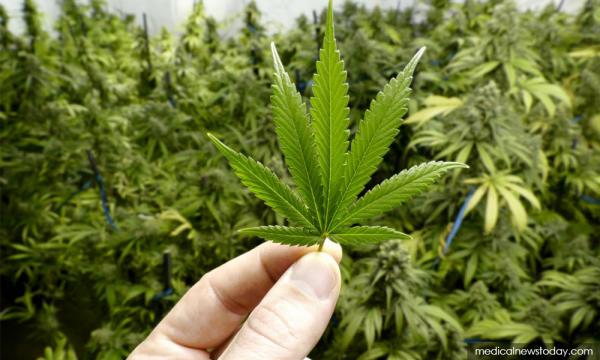LETTER | On Aug 3, 2018, Dr Jeff Blackmer, vice-president of medical professionalism for the Canadian Medical Association said: "The medical profession, as a whole, has really struggled with the whole concept of medical cannabis. There's definitely some physicians who feel comfortable in that area but most don't.
"And (that is) primarily because of the lack of evidence, the lack of scientific studies showing it actually works, the lack of knowledge around dosing and interactions with other medications - all these types of things.”
Kinda weird, right? Wasn’t Canada among the first countries to legalise medical and recreational marijuana? Yes, medical marijuana has been approved in Canada since 2001. The Canadian Medical Marijuana Access Regulations grant legal access to cannabis for individuals with HIV/Aids and some other illnesses. In 2013, new regulations changed the Canadian medical marijuana access rules, allowing only licensed commercial growers for supply.
However, even with the long period of legalisation, doctors there are still not entirely convinced with the medical marijuana hype. They prescribe it reluctantly and only use it as the last choice of treatment in selected patients.
In February this year, the College of Family Physicians of Canada published a clinical guideline on medical marijuana prescribing entitled Simplified Guideline for Prescribing Medical Cannabinoids in Primary Care.
These are a few highlights from the document:
- We recommend against the use of medical cannabinoids for most medical conditions owing to lack of evidence of benefit and known harms (strong recommendation).
- We strongly recommend against the use of medical cannabinoids for acute pain management owing to evidence of no benefit and known harms (strong recommendation)
- We recommend against the use of medical cannabinoids for headaches owing to lack of evidence and known harms (strong recommendation)
- We recommend against the use of medical cannabinoids for pain associated with rheumatologic conditions (including osteoarthritis and back pain) owing to lack of evidence and known harms (strong recommendation)
- We recommend against medical cannabinoids as first or second-line therapy in neuropathic pain owing to limited benefits and high risk of harms (strong recommendation)
- We recommend against the use of medical cannabinoids as first- or second-line therapy for palliative cancer pain owing to limited benefits and high risk of harms (strong recommendation)
- We recommend against the use of medical cannabinoids for general nausea and vomiting owing to the lack of evidence and known harms (strong recommendation)
- We strongly recommend against medical cannabinoids for nausea and vomiting in pregnancy or hyperemesis gravidarum owing to the lack of evidence, known harms, and unknown harms (strong recommendation)
- We recommend against the use of medical cannabinoids as first or second-line therapy for chemotherapy-induced nausea and vomiting (CINV) owing to limited comparisons with first-line agents and known harms (strong recommendation)
- We recommend against the use of medical cannabinoids for general spasticity owing to lack of evidence and known harms (strong recommendation)
- We recommend against the use of medical cannabinoids as first or second-line therapy for spasticity in multiple sclerosis (MS) or spinal cord injury (SCI) owing to limited evidence and known harms (strong recommendation)
Overall, the guideline said that medical marijuana was not recommended for most patients and conditions by far. It should only be considered in neuropathic pain, palliative cancer pain, CINV, and MS or SCI-related spasticity for patients whose conditions are refractory to standard medical therapies.
Even so, they only recommend medical marijuana in their pharmaceutical dosage forms such as nabilone and nabiximols. These products have been proven to be safe and have clear dosage recommendations.
For the last few months, we have heard strong propositions from prominent figures in Malaysia to allow the use of medical marijuana. It seems that they feel Malaysia will be left behind if we don’t legalise marijuana use for medical purposes.
What they don’t really is that our current act allows for the use of marijuana for the purposes of treatment as long as it has met the required standard for registration in Malaysia.
Since none of them is a health professional, maybe they also do not realise the existence or the importance of a clinical practice guideline. Even though medical marijuana is legal in Canada, its use is not backed up by strong scientific evidence thus limiting its proper use in professional medical treatment.
I personally believe the main reason for medical marijuana legalisation in Canada is to ensure that patients do not consume marijuana with the perception that it is beneficial to their health. By legalising medical marijuana, there will be a discussion with patients regarding its limited benefits and more common harms, and a preferential trial of pharmaceutical cannabinoids over medical marijuana.
This action might be beneficial here from a public health point of view. A recent survey showed that 2.4 million Canadians are daily or weekly cannabis users. The problem with marijuana is so rampant that legalisation becomes the only way to limit its harm to the public.
By legalisation, they can control its supply, identify associated problems and intervene whenever necessary. Do we need the same mechanism here? I don’t think so. At least, not yet.
he views expressed here are those of the author/contributor and do not necessarily represent the views of Malaysiakini.


